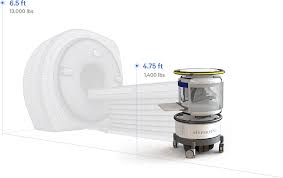
Breaking News
 Boston Dynamics' Atlas just did a roundoff back handspring… yeah we're cooked
Boston Dynamics' Atlas just did a roundoff back handspring… yeah we're cooked
 It's Not Just Pakistan - Foreigners from Around the World Who Are Not US Citizens...
It's Not Just Pakistan - Foreigners from Around the World Who Are Not US Citizens...
 Elon Musk's Darkest Secret - Dr. Eric Weinstein
Elon Musk's Darkest Secret - Dr. Eric Weinstein
 Puerto Rico's Rep. Rivera Turned The Halftime Show Into an Anti-ICE Rant (VIDEO)
Puerto Rico's Rep. Rivera Turned The Halftime Show Into an Anti-ICE Rant (VIDEO)
Top Tech News
 SpaceX Authorized to Increase High Speed Internet Download Speeds 5X Through 2026
SpaceX Authorized to Increase High Speed Internet Download Speeds 5X Through 2026
 Space AI is the Key to the Technological Singularity
Space AI is the Key to the Technological Singularity
 Velocitor X-1 eVTOL could be beating the traffic in just a year
Velocitor X-1 eVTOL could be beating the traffic in just a year
 Starlink smasher? China claims world's best high-powered microwave weapon
Starlink smasher? China claims world's best high-powered microwave weapon
 Wood scraps turn 'useless' desert sand into concrete
Wood scraps turn 'useless' desert sand into concrete
 Let's Do a Detailed Review of Zorin -- Is This Good for Ex-Windows Users?
Let's Do a Detailed Review of Zorin -- Is This Good for Ex-Windows Users?
 The World's First Sodium-Ion Battery EV Is A Winter Range Monster
The World's First Sodium-Ion Battery EV Is A Winter Range Monster
 China's CATL 5C Battery Breakthrough will Make Most Combustion Engine Vehicles OBSOLETE
China's CATL 5C Battery Breakthrough will Make Most Combustion Engine Vehicles OBSOLETE
 Study Shows Vaporizing E-Waste Makes it Easy to Recover Precious Metals at 13-Times Lower Costs
Study Shows Vaporizing E-Waste Makes it Easy to Recover Precious Metals at 13-Times Lower Costs
World's first mobile MRI machine detects strokes that require surgery

This world-first portable MRI machine proved its potential in early trials, and a new Yale-led study has built on this success by using it to detect cases of stroke in need of surgical intervention, with a high degree of accuracy.
Dubbed the Portable Point-of-Care MRI system, the machine is the handiwork of healthcare technology company Hyperfine, and was developed as a mobile alternative to large and expensive MRI machines that require custom-built rooms for their powerful magnetic fields. In essence, Hyperfine's MRI solution harnesses advances in computing power to dial down the size of magnets required, packing them into a machine that is 10 times lighter, 20 times less costly and uses 35 times less power than current MRI machines.

 Smart dust technology...
Smart dust technology...

